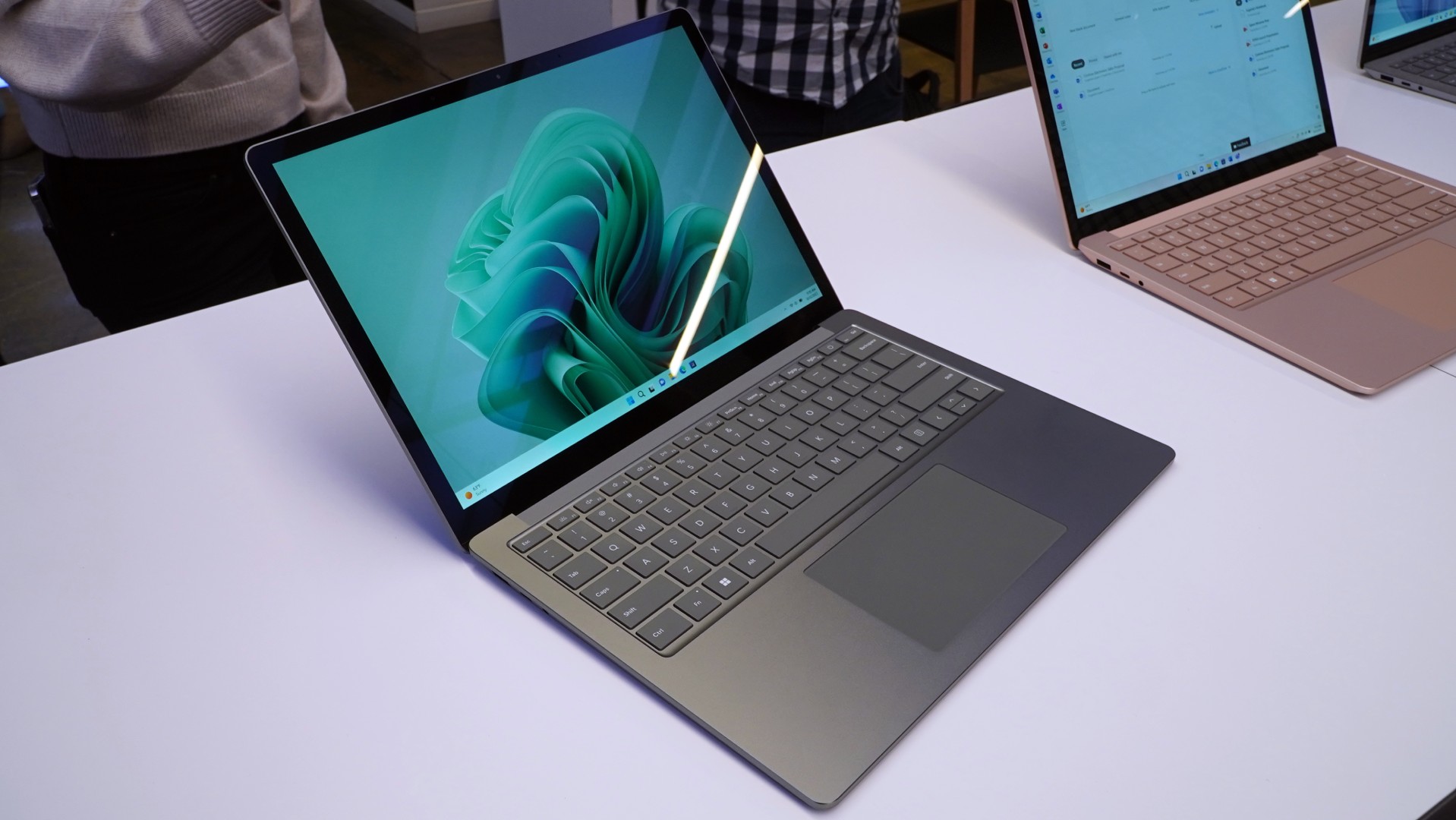“Panos Panay” may not be an anagram for “passion,” but at Microsoft, it was pretty darn close.
Panos Panay, the chief product officer for Microsoft, unexpectedly stepped down on Tuesday, after serving nearly twenty years at the company. Panay rose to the ranks of chief product officer, overseeing the development of Windows and its complementary Surface PC line. Interestingly, Panay gave no specific reason for leaving, and at press time had only posted a single message announcing his departure on Twitter/X.
Even more interestingly, Panay had originally said he would oversee the launch of Microsoft’s next Surface devices at an event this week, on Sept. 21. It’s not clear when Panay’s final day will be, but it’s almost certain that he will hand off presentation duties to someone else. According to an internal memo that Microsoft made public, Mikhail Parakhin, who heads up Bing and Bing Chat, will oversee a new Windows and Web Experiences team. Surface appears to still be under the leadership of Pavan Duvuluri, the current general manager of Surface and the head of Windows Silicon and Systems Integration. Yusuf Mehdi, Microsoft’s consumer chief, will still handle external OEM relationships and will probably oversee the Surface event.
So is Panay’s departure a positive or a negative for Microsoft? It’s an opportunity, but one Microsoft probably won’t take.
We spent considerable time outlining the problems with Surface earlier this year. To recap: Microsoft’s Surface hardware has become stale, just recycling product after product with nary a change besides the internal configuration and a tweak to the external ports. Competitors are leading the way. (To be fair, those competitors complained vehemently when Microsoft first launched Surface, believing that Microsoft would exercise the unfair advantage of being intimately close to its Windows team.) And, of course, we weren’t sure how Microsoft would design a PC for the AI age.
It appears that Microsoft is pushing the latter point hard. By making Parakhin the Windows chief, the role of AI becomes prominent. It seems likely that Windows Copilot, the AI-powered tool that (let’s face it) is currently rather dumb, will steadily improve and begin to take over more and more within Windows itself.
Will Microsoft head in the right direction?
Fresh blood is always a chance for improvement and change. But Microsoft doesn’t usually change in the direction we want.
Panay and Mehdi are the two most prominent consumer voices at Microsoft. One just left. But Panay was always the person that was synonymous with new experiences, emphasizing the person as much as the product. His sometimes tearful presentations showcased both his family as well as the family of devices that he introduced to the world. Panay struck me as a man who believed strongly in what he did, and convinced management to try new things, such as all of the various iterations of the Surface lineup.
Unfortunately, many weren’t successful (Surface Neo, Surface Duo) or not obviously so (the Surface Laptop Go, among others), though there are certainly plenty of strong Surface hits. Regardless of success or failure, however, Surface devices have always been impeccably designed, and thanks in part to Panay’s pumped-up product reveals, they always seemed to have heart, a reason to exist. Panay was a passionate voice for the consumer.
Mehdi has traditionally taken a safer, more corporate approach.
Now, Microsoft and Duvuluri could take this opportunity to revamp Surface: change its design, freshen up its product categories. Where’s our Xbox gaming PC? We could have a fresh, bright Microsoft, bringing some of the fun back. Why not a Steam Deck-like mobile gaming PC, too?
Nah.
I suspect the opposite will happen: Microsoft will start quietly trimming some of the experimental Surface lines we’ve seen in the past, probably returning to some sort of a Surface Pro/Surface Laptop duopoly, with some third device (either a Surface Go or subsequent Surface Laptop Studio iterations) for creatives. That’s it.
Microsoft’s quarterly earnings continue to be dominated by the cloud, especially Azure. The PC business has always been a rocky road. Microsoft 365 subscriptions have taken off in recent years, and Microsoft wants to sign customers up for Microsoft 365 Copilot AI subscriptions, too, at a whopping $30 per user per month. The message here is that Microsoft wants you to sign up for as many recurring subscriptions as your wallet will bear. Expect business to be the focus, not consumers.
Panos Panay has (had?) a voice. A soul. Bing Chat once did too, and Microsoft’s Parakhin killed it. It’s now just a bland AI assistant. Anyway, Microsoft is clearly more interested in AI that helps businesses make money. And why not? That’s where the money actually is, after all.
I think we should all ask the question: Did Panos leave because he felt his work was done? Or because he believed that Microsoft wouldn’t be able to progress any further? It’s tough to ask consumers to believe in the products Microsoft will introduce this week when their champion has departed the field.
Bloomberg reports that Panay is headed to Amazon, to oversee its Alexa division and its related devices.



